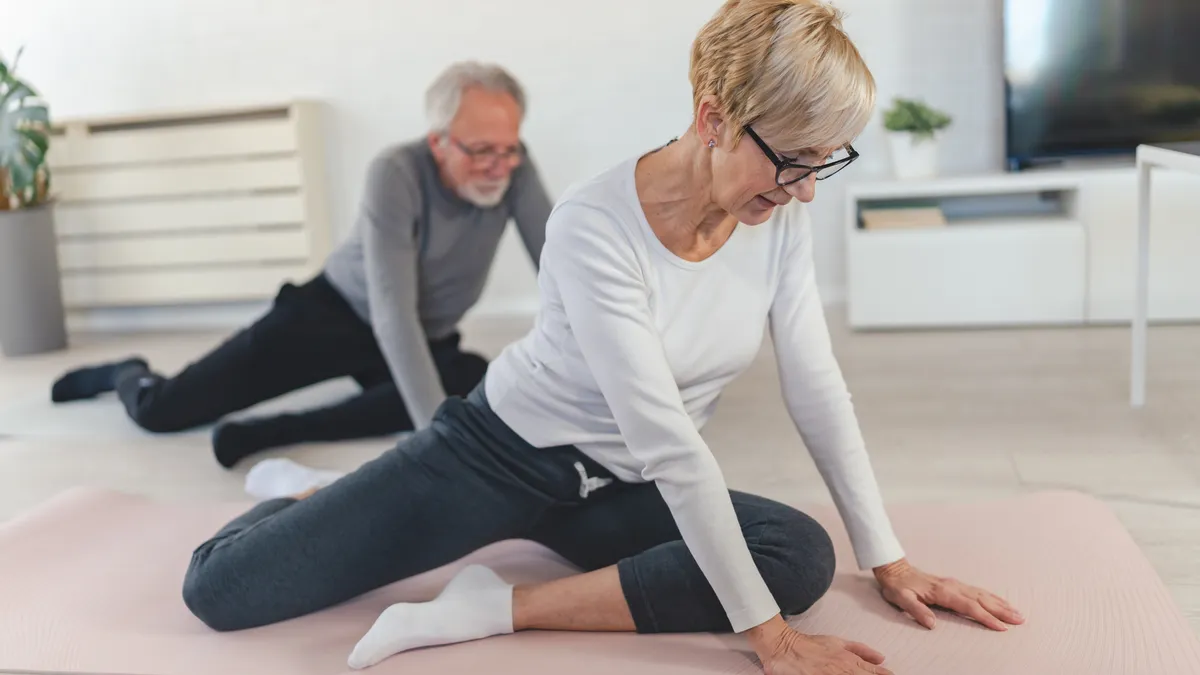
The seniors participating in my seated exercise class typically express concerns about two primary issues: how to get out of their chair unaided and how to live longer. They are eager to maintain the balance necessary for reaching items in cupboards and to possess the strength needed to tend to their gardens. Ultimately, they wish to live independently for as long as possible. Fortunately, I recently had an enlightening conversation with Catherine Norton, an associate professor of sport and exercise nutrition at the University of Limerick, and her colleague, exercise physiologist Dr. Gráinne Hayes. They shared two essential pieces of advice that can help anyone achieve these important goals.
“In simple terms: if you want to keep doing the things you love—whether that’s gardening, dancing, or playing with grandkids—mobility matters,” explains Hayes. “Mobility training is often an overlooked aspect of healthy aging. It is crucial for keeping our joints moving freely, improving posture, and minimizing the risk of falls and injuries.”
Hayes emphasizes that incorporating mobility training into your routine can lead to numerous benefits, including reduced risk of injury, improved circulation, and diminished wear and tear on your joints—issues that become increasingly significant as we age. “While mobility training should not replace strength training or cardio exercises, it should be integrated to enhance overall performance—whether for daily living activities or sports.”
She encourages everyone to begin mobility exercises as soon as possible: “The earlier, the better—but it’s never too late to start. Just like brushing your teeth, mobility should be a daily habit from childhood onward. However, individuals in their 40s and beyond often experience substantial improvements in their movement and overall well-being by prioritizing mobility.”
The World Health Organization recommends that older adults engage in a variety of exercises that enhance functional balance at least three times a week. This could include activities like Tai Chi or mobility moves such as the sit-to-stand exercise. “You don’t need to dedicate hours to it,” says Hayes. “Even just five to ten minutes a day can yield significant benefits. Keep it simple: a morning stretch or a few minutes of movement before bed. The key is consistency, not perfection.”
Norton adds a fun perspective: “Mobility is about freedom. It allows us to stay independent, confident, and connected to our surroundings. It doesn’t have to be mundane!” She suggests enjoyable ways to incorporate mobility into daily life, such as dancing in the kitchen or stretching while watching TV. “Every little bit adds life to your years.”
“Nutrition plays a pivotal role in how we move and feel,” Norton states. “A Mediterranean-style diet—rich in colorful fruits, vegetables, fish, and healthy fats—can significantly reduce inflammation and support joint health.” This dietary approach has been endorsed by various health organizations, including the World Health Organization.
Norton outlines key components to include in your diet to emulate the Mediterranean style. Protein is vital for maintaining muscle strength; good sources include fish, lean meats, eggs, dairy, tofu, beans, and lentils. Healthy fats, derived from oily fish, olive oil, avocados, and nuts, can help decrease joint inflammation. Adequate intake of calcium and vitamin D is essential for bone health, which can be supported through dairy products, leafy greens, fortified foods, and safe sun exposure.
In addition, consuming antioxidant-rich foods—like berries, peppers, green tea, and turmeric—can aid in alleviating inflammation and stiffness. Finally, hydration is crucial; dehydrated tissues are less elastic and more susceptible to injury.
By incorporating regular mobility training and adopting a Mediterranean-style diet, seniors can significantly enhance their independence and longevity. These practices not only promote physical well-being but also foster a more fulfilling and active lifestyle, ultimately allowing individuals to engage in the activities they love for many more years to come.